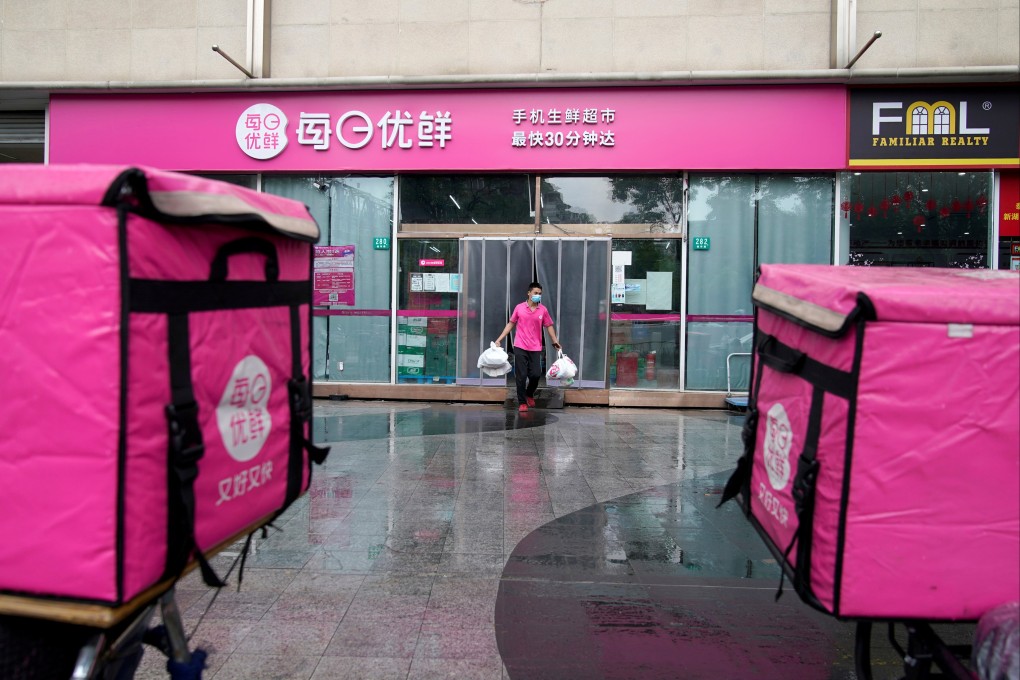Delivery firm Missfresh collapses as another Nasdaq-listed Chinese firm falls prey to weakening economy
- The Tencent-backed on-demand delivery firm abruptly announced on Thursday that it had run out of cash, dismissing workers and leaving suppliers unpaid
- Missfresh blamed a coal miner for failing to come through on a promised investment, but China’s Covid-19 restrictions have hurt delivery operations and consumer spending

Nasdaq-listed retailer Missfresh, one of the new faces of China’s e-commerce sector, collapsed on Thursday with a dramatic announcement that it was dismissing most of its employees and leaving hundreds of suppliers unpaid.
Missfresh’s stock price on the Nasdaq had fallen to just 14 US cents on Thursday, about 1 per cent of its initial public offering price of US$13 last June, as its key business of delivering fruit and vegetables had largely ceased operation. The company said in a statement that services were facing a “temporary shutdown” amid “staff optimisation”.
For its suppliers, employees and consumers, however, the Beijing-based firm’s story is over.
Missfresh employees were told to stay at home on Thursday. In the afternoon, they were called into an online meeting and told that it would be their last day on the job. The company said it was not sure when June and July salaries would be paid, according to an online meeting record shared with the South China Morning Post.